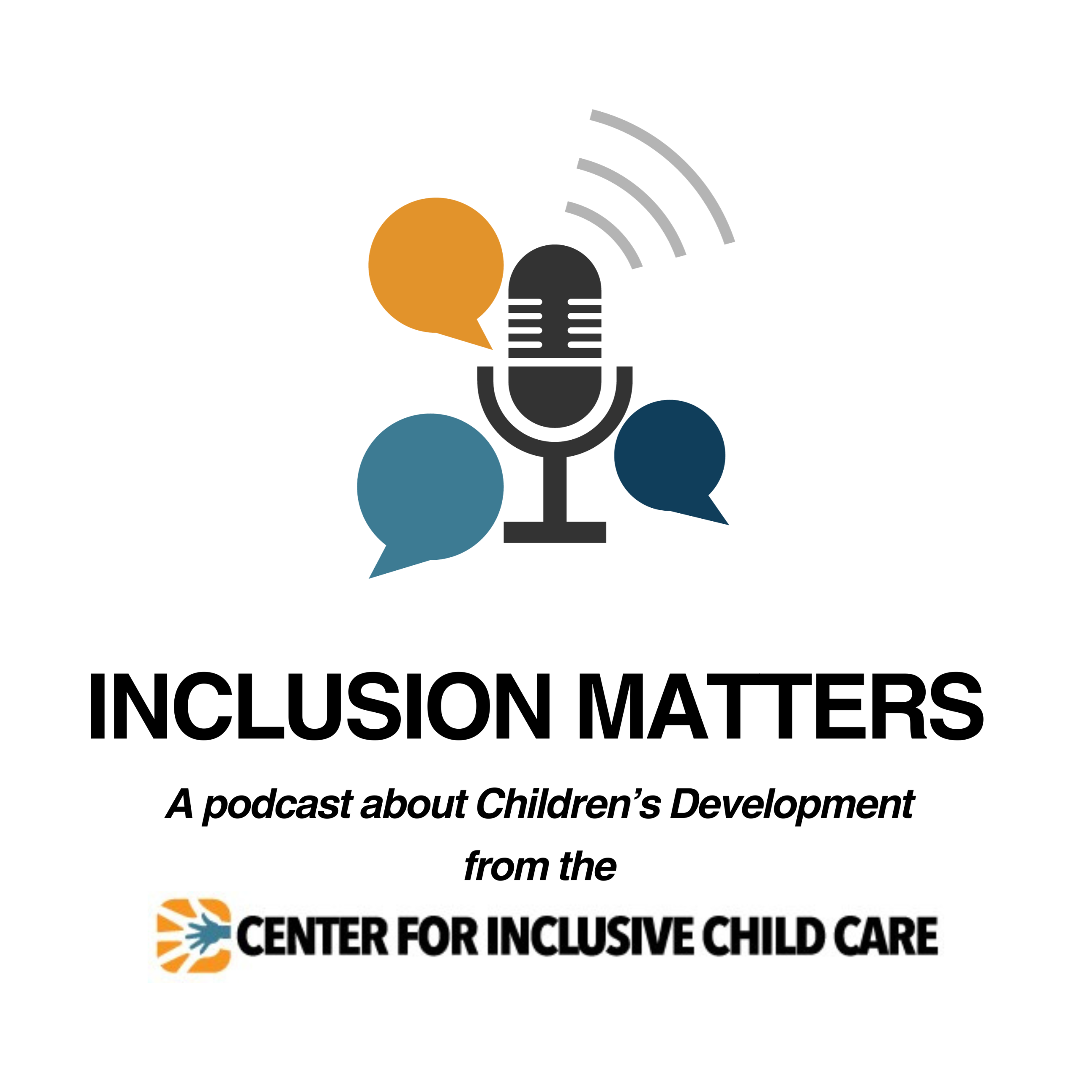Podcast

Inclusion Matters is a podcast produced by CICC. Early childhood experts discuss a wide array of important topics for early childhood professionals.
Inclusion Matters is also available on Spotify, Overcast, Google Podcasts, and Radio Public.
Autism Diagnosis: One Family’s Experience
This podcast episode allows us to hear a unique perspective from a parent as she looks back over her family’s journey through a diagnosis of Autism Spectrum Disorder. Each path is unique in this process and we are able to hear the ups and downs from her individual perspective and learn what is working for her child, based on his needs.
(Length: 41:56)Minnesota Autism Resource Portal Part 2
Our guests from the MN Department of Human Services Autism Resource Portal, Nicole Berning, and Kim Hicks join us again to showcase the amazing resources located in the portal. They discuss ways it can be helpful to early childhood professionals and to parents.
(Length: 14:06)
Minnesota Autism Resource Portal Part 1
Listen as our guests, Nicole Berning, Autism Clinical Lead, and Kim Hicks, Autism Policy Lead for the MN Department of Human Services share an overview of autism spectrum disorder (ASD) and some of the early signs to watch for as you care for young children.
(Length: 14:18)A Child Who Flies “Under the Radar”--When a Diagnosis Isn’t Made: Part Three
In this podcast, we will continue the last conversation by looking at 4-5 year olds. It is easy at times to see a child’s behavior outside of the context of their age and stage. When we look again at what we are hoping to teach children in a larger sense, we can begin to appreciate some of those challenging behaviors as their way at reaching important milestones!
(Length: 11:49)Choosing A Setting--What is the Best Option for a Child with Autism: Part Two
In our continued discussion with Pat Pulice, M.A., L.P., Vice President of Integrated Health Care at Fraser in Minneapolis, MN, we will look at different settings a child might be in who has an autism diagnosis and how to build a beneficial environment for children we serve. What kinds of supports are present in the therapeutic setting which help a child as they develop skills and when does an inclusive setting with typical developing peers offer other benefits to the child? Early educators can examine their environment for structure, routines, stimulation, and visual supports. Again, each child is an individual and their needs will vary but we will discuss some general strategies for inclusion.
(Length: 11:26)Young Children with Autism--What Does the Label Really Mean: Part One
In the first of this series of podcasts, Cindy and Priscilla interview Pat Pulice, M.A., L.P., Vice President of Integrated Health Care at Fraser in Minneapolis, MN, on what the major characteristics of autism can look like in a young child, how early we might identify a child, and what the identification process includes for young children who may have development red flags for autism. As with all children, the important attitude is seeing who the whole child is and what can support their special needs as they grow and develop.
(Length: 13:38)